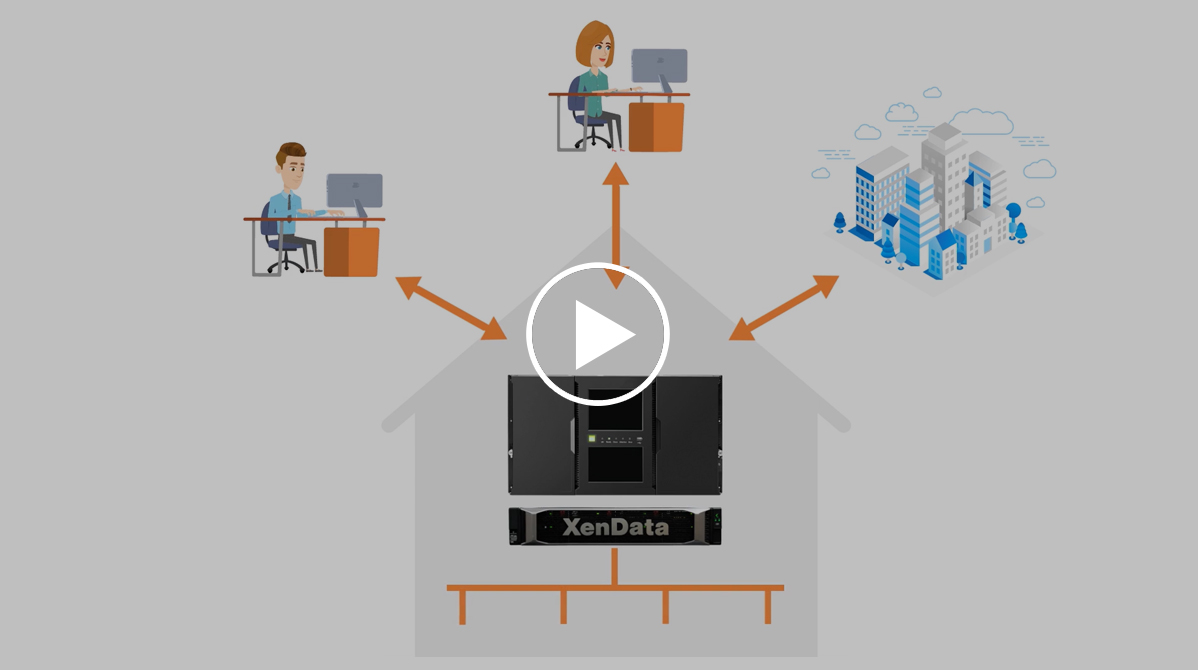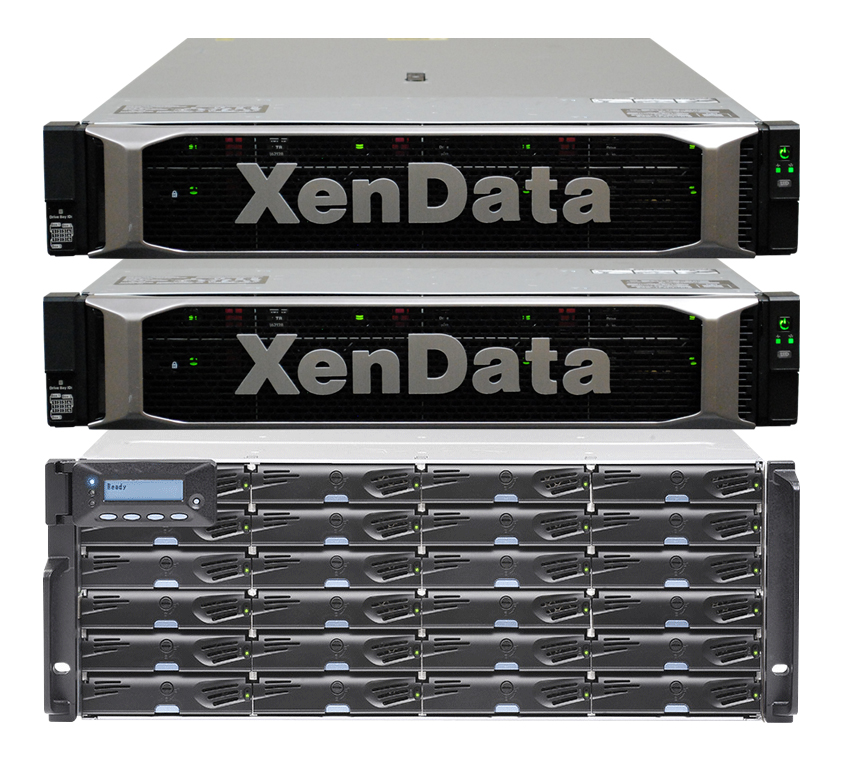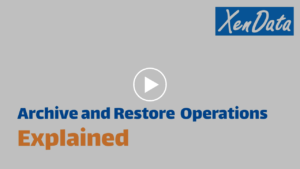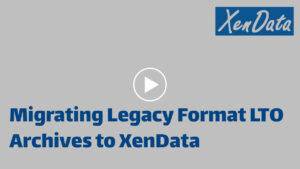Highly Scalable LTO Archive
XenData X100 archive systems manage LTO robotic libraries that scale to 100+ PB. They support leading enterprise libraries, including from HPE, IBM, Oracle, Qualstar, Quantum and Spectra Logic.
X100 systems use the power of modern servers to simplify the archive architecture. No longer are complex architectures with many servers required, even for the largest media archives. The XenData software that powers the X100 is optimized to take advantage of today’s high-performance servers with dual Xeon processors and Windows Server operating systems.
The X100 is available as a clustered system with no single point of failure and as a single high-performance server. It is powered by XenData Archive Series software which is trusted by many of the world’s largest media companies.
Single Server Configuration
The X100 is available in a single server configuration with an external RAID cache. The software and hardware are optimized to provide maximum performance.
Clustered Configurations
The X100 is available as a clustered system with no single point of failure. It may be configured to manage two LTO libraries and mirror files across them. Other configurations with a single enterprise-class library are supported.
Application Compatibility
X100 systems run a Windows Server 2022 operating system and are compatible with many complementary applications including:
Access from Anywhere
Adding an object storage S3 Server Interface to an X100 system allows files to be written to and read from the archive from anywhere worldwide using fast and secure HTTPS. The on-premises interface and associated permissions are not affected: the LTO archive continues to be accessible locally using SMB, FTP or NFS. Consequently, the S3 interface is available as a simple upgrade to existing users, as well as for new installations.
Using the S3 Server interface allows an organization to keep the attractive aspects of LTO on-premises archives which include cost effective scalability and adds the ease of distributed access which has traditionally been associated with public cloud storage. And, unlike most public cloud services, files may be remotely downloaded free of any egress charges.
Combine LTO and Cloud Object Storage
Adding a Cloud File Gateway Extension to your LTO archive system provides you with two archive destinations: local LTO and public cloud. The different archive destinations are presented in the highly scalable XenData archive file system, and you configure policies to determine which files are stored on cloud and which on archived on your on-premises LTO.
A Cloud File Gateway Extension creates a hybrid system that may be used in many ways:
- Backup on-premises LTO content to the cloud. This is an alternative to using XenData LTO cartridge replication which minimizes manual intervention.
- Copy content to local LTO as it is being written to the cloud. By keeping an LTO copy, avoid expensive egress and rehydration fees if you ever need to migrate.
- Migrate from LTO to the cloud. Automatically repack your LTO content to the cloud. This is a background task with no downtime.
- Migrate from cloud to Repatriate your cloud content to on-premises LTO to save on costly public cloud fees.
- Remote upload to the cloud and sync to on-prem LTO. Ideal for organizations that upload files to the cloud from the field and want to automatically create a copy on their central on-prem archive system.
Cloud File Gateway Cost Calculator










